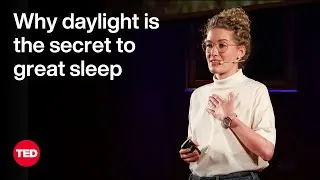請雙擊下方英文字幕播放視頻。
譯者: Szu-Wen Kung
審譯者: Helen Chang
00:07
85% of the matter in our universe
is a mystery.
0
7319
3620
宇宙有 85% 的物質仍未知
00:10
We don't know what it's made of,
which is why we call it dark matter.
1
10939
4220
我們不清楚這些物質的成分
因此稱之為暗黑物質
我們能觀察到暗黑物質
在星團與其他天體上的重力
00:15
But we know it's out there because we
can observe its gravitational attraction
2
15159
3899
00:19
on galaxies and other celestial objects.
3
19058
3441
所以知道暗黑物質的存在
00:22
We've yet to directly observe dark matter,
4
22499
2349
我們還無法直接觀察暗黑物質
00:24
but scientists theorize that we may
actually be able to create it
5
24848
3482
不過科學家論述表示人類也許
能用世上最強大的粒子對撞機
00:28
in the most powerful particle collider
in the world.
6
28330
3569
創造出暗黑物質
00:31
That's the 27 kilometer-long
Large Hadron Collider, or LHC,
7
31899
4900
這是一台長 27 公里的
大強子對撞機或簡稱 LHC
00:36
in Geneva, Switzerland.
8
36799
1721
位於瑞士的日內瓦
00:38
So how would that work?
9
38520
1520
所以機器如何運作 ?
在 LHC 裡兩個質子束
以反方向旋轉
00:40
In the LHC, two proton beams
move in opposite directions
10
40040
4129
00:44
and are accelerated
to near the speed of light.
11
44169
3151
隨後加速近似光速
00:47
At four collision points, the beams cross
and protons smash into each other.
12
47320
5073
在第四個撞擊點質子束相遇 質子互撞
00:52
Protons are made of much smaller
components called quarks and gluons
13
52393
4299
質子是由更小的夸克和膠子所組成
00:56
In most ordinary collisions, the two
protons pass through each other
14
56692
4309
在最普通的撞擊 兩個質子穿越彼此
01:01
without any significant outcome.
15
61001
2542
沒有產生重大的結果
01:03
However, in about
one in a million collisions,
16
63543
2730
但每一百萬次裡的一次撞擊
01:06
two components hit each other
so violently,
17
66273
2439
兩個質子會強力衝撞
01:08
that most of the collision energy
is set free
18
68712
3199
釋放出絕大部分的衝撞能量
01:11
producing thousands of new particles.
19
71911
2523
產生上千個新粒子
01:14
It's only in these collisions that very
massive particles,
20
74434
2979
只有在這類撞擊中才會
產生超大粒子
01:17
like the theorized dark matter,
can be produced.
21
77413
3910
像是理論上的暗黑物質
01:21
The collision points
are surrounded by detectors
22
81323
2670
撞擊點四周都是探測器
01:23
containing about 100 million sensors.
23
83993
3182
探測器內有約一億個感應器
如同大型 3D 照相機
01:27
Like huge three-dimensional cameras,
24
87175
2120
01:29
they gather information
on those new particles,
25
89295
2370
探測器蒐集新粒子的資訊
01:31
including their trajectory,
26
91665
1408
包括軌跡
01:33
electrical charge,
27
93073
1387
電荷
01:34
and energy.
28
94460
1693
與能量
01:36
Once processed, the computers can depict
a collision as an image.
29
96153
3583
處理運算後
電腦便能描繪出撞擊的影像
01:39
Each line is the path
of a different particle,
30
99736
3209
每條線都是每個不同粒子的路徑
01:42
and different types of particles
are color-coded.
31
102945
3210
還用顏色為不同型態的粒子編碼
01:46
Data from the detectors
allows scientists to determine
32
106155
3030
探測器所蒐集的資料讓科學家能決定
01:49
what each of these particles is,
33
109185
2001
這些粒子是什麼
01:51
things like photons and electrons.
34
111186
2750
像是光子和電子
01:53
Now, the detectors take snapshots of about
a billion of these collisions per second
35
113936
4560
探測器每秒大約拍攝十億次
這些碰撞的快照
01:58
to find signs of extremely rare
massive particles.
36
118496
3920
以找出稀有大型粒子的跡象
02:02
To add to the difficulty,
37
122416
1329
難上加難的是
02:03
the particles we're looking for
may be unstable
38
123745
2951
我們想尋找的粒子可能並不穩定
02:06
and decay into more familiar particles
before reaching the sensors.
39
126696
5121
在感應器能覺察之前
就會衰變為我們較熟知的粒子
02:11
Take, for example, the Higgs boson,
40
131817
2301
以「希格斯玻色子」為例
02:14
a long-theorized particle that wasn't
observed until 2012.
41
134118
4380
此長久來只存在理論上的粒子
直到 2012 年才被觀察到
02:18
The odds of a given collision producing
a Higgs boson are about one in 10 billion,
42
138498
6160
要讓特定撞擊產生希格斯玻色子的
機率約是百億分之一
02:24
and it only lasts for
a tiny fraction of a second
43
144658
2960
只存在須臾一秒
02:27
before decaying.
44
147618
1921
就衰變了
02:29
But scientists developed theoretical
models to tell them what to look for.
45
149539
4099
不過科學家發展出理論架構
讓人知道該尋找甚麼
02:33
For the Higgs, they thought it would
sometimes decay into two photons.
46
153638
4471
科學家原本認為希格斯玻色子
會衰變成兩個光子
02:38
So they first examined only
the high-energy events
47
158109
3450
因此他們起初只檢視
包含雙光子的高能量事件
02:41
that included two photons.
48
161559
2009
02:43
But there's a problem here.
49
163568
1872
然而有個問題存在
02:45
There are innumerable
particle interactions
50
165440
2280
無數個粒子互動
02:47
that can produce two random photons.
51
167720
2460
會隨機產生兩個光子
所以該如何將希格斯玻色子
與其他物質分離
02:50
So how do you separate out the Higgs
from everything else?
52
170180
3459
02:53
The answer is mass.
53
173639
2241
答案是質量
02:55
The information gathered by the detectors
allows the scientists to go a step back
54
175880
5051
探測器蒐集的資訊
能讓科學家退一步審思
03:00
and determine the mass of whatever it was
that produced two photons.
55
180931
4741
判定產生兩個光子的那東西的質量
03:05
They put that mass value into a graph
56
185672
2119
科學家將質量值轉成圖表
03:07
and then repeat the process
for all events with two photons.
57
187791
4469
然後在所有產生雙光子的事件
重複相同步驟
03:12
The vast majority of these events
are just random photon observations,
58
192260
4221
絕大多數的事件
僅是觀察隨機產生的光子
03:16
what scientists call background events.
59
196481
3621
即科學家口中的背景事件
但當一個希格斯玻色子產生
並衰變為兩個光子時
03:20
But when a Higgs boson is produced
and decays into two photons,
60
200102
3930
03:24
the mass always comes out to be the same.
61
204032
3120
產生的質量永遠一樣
03:27
Therefore, the tell-tale sign
of the Higgs boson
62
207152
2570
因此希格斯玻色子的特徵
03:29
would be a little bump sitting on top
of the background.
63
209722
3951
就是出現在背景上方的微小凸塊
03:33
It takes billions of observations
before a bump like this can appear,
64
213673
3690
至少需進行數十億次的觀察
小凸塊才會出現
03:37
and it's only considered
a meaningful result
65
217363
2411
且也只有當小凸塊
明顯比背景來得高
03:39
if that bump becomes significantly
higher than the background.
66
219774
4339
得出的結果才有意義
03:44
In the case of the Higgs boson,
67
224113
1981
在希格斯玻色子的案例中
03:46
the scientists at the LHC announced their
groundbreaking result
68
226094
3789
使用大強子對撞機的科學家
宣布突破性的結果
03:49
when there was only
a one in 3 million chance
69
229883
3092
即只有三百萬分之一的機會
03:52
this bump could have
appeared by a statistical fluke.
70
232975
4070
才能僥倖得出小凸塊出現的數據
03:57
So back to the dark matter.
71
237045
1830
回到暗黑物質
03:58
If the LHC's proton beams have enough
energy to produce it,
72
238875
3570
若大強子對撞機的質子束
有足夠的能量產生暗黑物質
04:02
that's probably an even rarer occurrence
than the Higgs boson.
73
242445
4461
可能會比希格斯玻色子的
出現更為罕見
04:06
So it takes quadrillions of collisions
combined with theoretical models
74
246906
4020
所以需要千兆次的撞擊
並配合理論架構
04:10
to even start to look.
75
250926
2119
才能開始尋找
04:13
That's what the LHC is currently doing.
76
253045
3072
這也是大強子對撞機
目前正在進行的計畫
04:16
By generating a mountain of data,
77
256117
1769
藉由龐大資料的產生
04:17
we're hoping to find more tiny bumps
in graphs
78
257886
3080
我們希望能在圖表中
找出更多微小凸塊
04:20
that will provide evidence for
yet unknown particles, like dark matter.
79
260966
4850
期能為仍未知的粒子
如暗黑物質佐證
04:25
Or maybe what we'll
find won't be dark matter,
80
265816
2471
也有可能我們找到的
不是暗黑物質
04:28
but something else
81
268287
1188
而是其他物質
04:29
that would reshape our understanding
of how the universe works entirely.
82
269475
4513
這能夠完全改變人類
對宇宙運作的認知
04:33
That's part of the fun at this point.
83
273988
2011
那也是目前為止部分的研究樂趣
04:35
We have no idea what we're
going to find.
84
275999
2427
到底會找到甚麼
我們仍一無所悉
New videos
關於本網站
本網站將向您介紹對學習英語有用的 YouTube 視頻。 您將看到來自世界各地的一流教師教授的英語課程。 雙擊每個視頻頁面上顯示的英文字幕,從那裡播放視頻。 字幕與視頻播放同步滾動。 如果您有任何意見或要求,請使用此聯繫表與我們聯繫。







